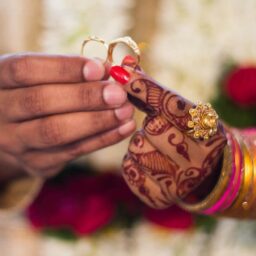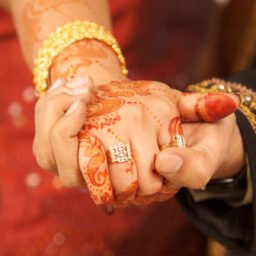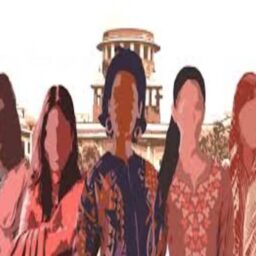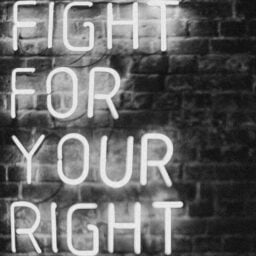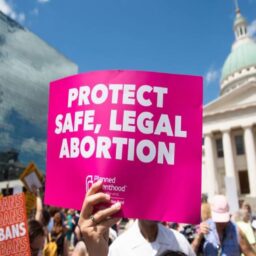INTRODUCTION
Sex is something that is assigned to the child from birth. Some people think that the sex which is assigned to them from birth does not match with the gender identity as well the particular gender they feel from inside. Those people are called transgender who feels this difference between their assigned sex and their feeling from inside. Transgender has different terms and even there are different ways that transgenders use to define themselves.
Sometimes, the transgender word is shortened to trans, trans male, or trans female. Transgender is the third gender of our society, and they should be called in those names only which they prefer. The language and labels which people use for them should be the name that they would be aware of and prefer. They express their identities in many ways like using their dress, mannerisms, and behaviours. Some people undergo treatment, have surgery, and take hormones to change their body and bring out the gender which they feel inside themselves. As society distinguishes and prefers people only between the female and male, the transgender rejects their traditional understanding and calls them genderqueer gender fluid, or hijra. They are very diverse in their identities, gender expressions, and sexual orientations. When the assigned sex from birth and the inside gender identity remains the same, those people are termed as cisgender.
TRANSGENDER IDENTITY DIFFERENT FROM SEXUAL ORIENTATION
Often, we can see that sexual orientation is confused with gender identity. But transgender is not the same thing as a lesbian, gay or bisexual. Transgender or cisgender is a gender identity which means who the person is inside whether male, female, both or none. Now bisexual, gay, or straight described whom the person is attracted to and whom we feel for emotionally, sexually, or romantically. Any transgender can be gay, bisexual, or lesbian.
GENDER DYSPHORIA
The doctors and psychologists use the term gender Dysphoria to describe the emotional state that is distress, anxiety, and unhappiness that transgenders feel from within. They often feel unhappy about the mismatch between their gender identity and their body. Medical treatment can be taken to formally diagnose the person with Gender Dysphoria. This is a gender identity disorder. The difference between gender identity and personal body creates emotional distress in the person, that’s why the term was changed.
Position of Transgender in Family Law and Concept of Passing
Passing is a word that describes the experience that a transgender feels when other people see them as something else which they want to be. For example, if we talk about a trans woman using the women’s bathroom and the people who are around her see her as female-only. The concept of passing is a very important factor for transgenders, especially for emotional purposes. This concept also provides safety to transgenders from violence and harassment. There is a phobia amongst the transgenders that is transphobia, which helps the person have an easier experience while passing through the world than those transgenders who are known to be in that way or looks more androgynous. Some transgenders do not feel comfortable in the way people look at them or think of them to be. They suffer from an inferiority complex as most people look at them from a very bad perspective. Many want to think of them as cisgender rather than transgender. While others feel proud and comfortable being transgender and called trans.
The hijra community is found all over India and is scattered across maximum states. The majority of the transgenders are found in Western and North Indian states due to livelihood resources and some stay in South India as well. Livelihood is the most important factor why all transgenders migrate to North Indian states. The hijras or transgenders go to larger metropolises from smaller towns to escape from their families, earn a living and have their own identity. When transgender is born, once they grow big, they are forced to leave the house by society and their parents. This is a result of the expulsion of property rights as well as family entitlements. Being transgender, as they don’t get their family support and are exploited[1] by the members of the society, they join the hijra community for security purposes. The hijras perform rituals when a child is born and during marriages. Most people believe that hijras or transgenders have the power to bless or curse a person due to their religious-cultural background. They also believe that their blessings or “shrap” as in curse comes true at some point or the other. The sex or gender of the hijra is not known. This creates confusion amongst them. Their ambiguous sex or gender leads to denial of rights, stigma, and discrimination at various levels. The hijras and transgenders come under Section 268 of IPC which deals with public nuisance and Section 294 which deals with Obscene Acts and Songs.
Hijras are also known as Kinnars. They are booked under sections 7 and 8 of the Immoral Traffic Prevention Act of 1956. The complaint against them gets registered under Section 269 and 270 which deals with likely to spread infection under the Bombay Police Act, 1951. This criminalizes the hijra community to have sex in the public and does not fall under Section 377. If a transgender is raped, there are no strict actions that are taken, and all these sexual assaults and rape cases on transgender go unreported just because they are hijra or kinnar.
Many intervention programs have provided opportunities for transgenders, hijras, and aravanis to work in NGOs and CBO’s for transgender rights. There are many educated and skilled transgenders and are denied education or employment only because they are hijra or transgender. They also face problems in exercising their citizenship rights. Many of them have created an impact through media activism. Many hijras have won elections and we’re assigned the post of mayors or MLAs. They do not get the fundamental rights[2] Sections 4, 5, 6, 7, 12(3), 18(a), and 18(d) of the 2019 Act have violated their fundamental rights to life, liberty, privacy, autonomy, and dignity guaranteed under Article 21 that is right to equality. They are looked at with cheap eyes by society. For example, Kamala Jaan was transgender but she did not look like that. She lied about her gender and became the political opposition at the petition of the lower court. She was later transferred to Jabalpur high court. Few transgenders did not look like any male or female and because of this, they were denied jobs.
BASIC RIGHTS DENIED TO HIJRAS: TRANSGENDER RIGHTS IN INDIA
The rights of transgender[3] include ration cards, right to vote, right to marriage, adoption, opening a bank account, and other fundamental rights.
They face other difficulties like not getting access to public places, inaccessibility to wills and trusts, not getting access to public health benefits as well as employment discrimination. Some transgenders are denied admission in colleges because the sex mentioned in their birth certificate and other documents does not match with their body language and gender identity. The hijras face sexual violence and physical abuse from the police and local hoodlums. They face harassment by the police officers who are said to serve the nation. There are many situations of domestic violence and gang rape which transgenders face, many of them force the transgenders to have unprotected sex. If they disagree, they are subjected to physical assault or beaten brutally after the sex act[4].
Now if we talk about the rights[5] they deserve would be the right to equality under Articles 14 and 15. This is the first and foremost right. This talks about the prohibition of discrimination on the grounds of religion, caste, sex. The hijras or transgenders are also entitled to article 21 which provides the right to privacy and gives personal dignity to all citizens[6]. Also, article 23 prohibits trafficking in humans, and this if forces should be an offense punishable under law. The constitution does not tolerate any discrimination based on sex, caste, or religion. It provides benefits to all the citizens. But the transgenders being the third gender continue to be neglected.
RULING BY SUPREME COURT IN THE FAVOUR OF TRANSGENDERS
There was a ruling in the case of NALSA v. UOI[7] in 2014, where the Supreme Court gave its judgment that the transgender aka hijra should enjoy all Fundamental rights and entitle to all the benefits. Justice K.S Radhakrishnan even said that transgenders should decide their own identity and this should be recognized by the federal authorities. The bench of justice made a statement that if anything goes against transgender or they are deprived of any right, the court would take strict penal actions against the person.
CONCLUSION
The case reference Navtej Singh Johar v. Union of India[8], where the Supreme Court gave its input to strengthen states’ provisions and special measures should be ensured. The rights of the transgender, marginalized and vulnerable people should be a safeguard and it should stay within the jurisdiction of the Indian state. Other commitments and special rights should be taken against the transgender so that they lead a better life.
Author(s) Name: Sharanya Chakraborty
References:
[1] http://fusion.net/story/125983/what-trans-people-of-color-fear-after-bruce-jenner-media-circus/
[2] Grace Banu Ganeshan & Ors. v. Union of India & anr.
[3] Kyle Knight, India’s Transgender Rights Law Isn’t Worth Celebrating
[4] WRIT PETITION (CIVIL) NO.400 OF 2012
[5] https://www.hrw.org/news/2019/12/05/indias-transgender-rights-law-isnt-worth-celebrating
[6] http://nursingstudentsforsexualandreproductivehealth.org/resources/Pictures/Trans-Health-Supplements.
[7] WP (Civil) No 400 of 2012.
[8] AIR 2018 SC 4321.





